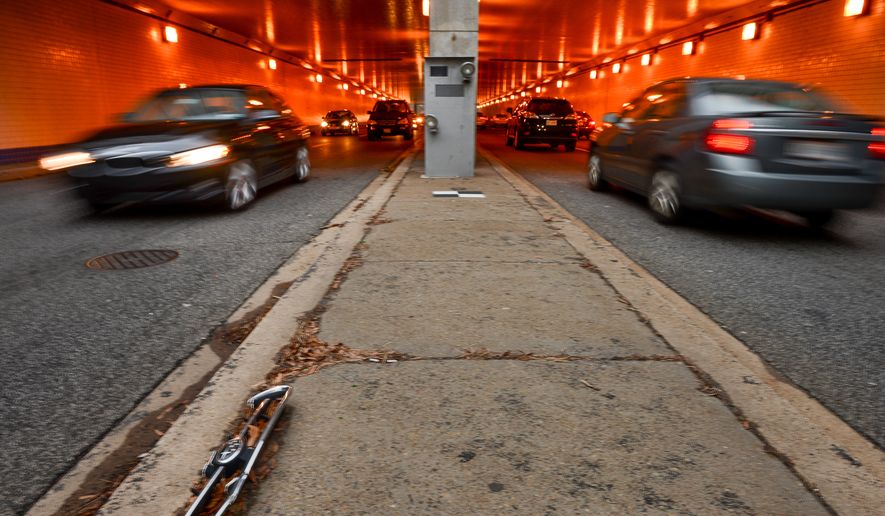The District is raising the cost of parking fees in the popular U Street corridor during high-use periods this month, expanding on earlier initiatives already in place that were designed to reduce vehicle traffic and congestion in Chinatown and Penn Quarter.
Starting Dec. 17, motorists will pay $3 an hour from 3 a.m. to 10 a.m., $5 an hour from 10 a.m. to 6 p.m., and $8 an hour from 6 p.m. to 3 a.m. to park in the U Street corridor, known for its numerous bars, clubs and restaurants. Parking will be free from 3 a.m. to 6 p.m. on Sundays, as it is throughout the city.
City officials say the initiative Is aimed at coaxing more drivers onto public transportation, rideshares and bicycles.
“The Greater U Street Performance Parking Zone is designed not only to streamline parking but also to promote sustainable transportation options and reduce congestion,” said Sharon Kershbaum, DDOT director.
The new parking zone stretches from the intersection of Florida Avenue NW and S Street NW up to Georgia Avenue NE and 17th Street NW. It runs east from 17th Street NW along U Street NW, then south down 14th Street and back to Florida Avenue NW via S Street.
Parking in these areas will increase from the current flat rate of $2.30 an hour between Mondays and Saturdays.
The city will also replace free two-hour parking zones on neighboring residential streets with standard fees for visitors without residential parking passes, payable through mobile apps only. After 30 days, the city’s nightlife task force will begin enforcing the new rules 24/7 by ticketing violators.
According to stakeholders interviewed by The Washington Times, residents living off U Street will likely appreciate this way of rationing scarce parking spots more than drivers and local restaurants.
“It sounds like a drag for people who drive to U Street, as well as for the businesses there,” said Shelley S. Hymes, a local publicist who reviews D.C. restaurants on the “LUNCH with Shelley” podcast. “Added prices never seem to be a good idea to me.”
“Some will choose to use public transportation or ride shares to avoid parking, leaving more space to those who are willing to pay a higher price,” said Yesim Sayin, executive director of the nonpartisan D.C. Policy Center. “Ultimately, the response is driven by consumer preferences and not coercion.”
Santiago Lakatos, a member of the city’s Advisory Neighborhood Commission who represents part of the new parking zone, chaired a committee that gave feedback to city officials.
He said residents overwhelmingly support the change because it will direct funds to a future business development district, reduce double parking and discourage visitors from hogging residential spaces late into the night.
“Right now there’s an extreme demand for parking from evening hours into the early morning,” Mr. Lakatos said. “I think it’s a good idea and that’s what I’ve heard from residents as well.”
According to a 2019 DDOT report, the Chinatown and Penn Quarter pilot program increased average parking meter prices by 32% from $2.30 in 2016 to $3.03 in 2017. The average time drivers spent searching for parking fell from nearly 18 minutes to less than 12 minutes as prices rose gradually.
The report found that low-demand parking blocks experienced a 12% increase in occupancy, with cars staying in them for 14 minutes longer on weeknights. Double parking and citations also declined.
Additionally, the pilot program reduced the number of cars parking in high-occupancy spots and how long they stayed there.
In November 2017, the average metered street parking time in Penn Quarter and Chinatown dropped by 3 minutes as DDOT raised fees to between $1 and $5.50 per hour. The agency has since hiked the upper limit to $7 an hour for high-demand spots and times in those areas.
In a Thursday email to The Times, a DDOT spokesperson said these numbers predict similar outcomes on U Street.
“This policy makes the best use of curb space, makes it easier for residents to find parking, and creates safer streets for drivers, cyclists, and pedestrians,” the spokesperson said.
• Sean Salai can be reached at ssalai@washingtontimes.com.




Please read our comment policy before commenting.